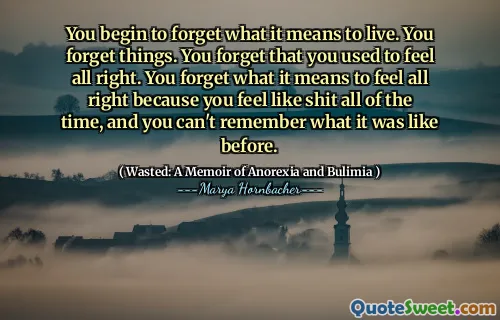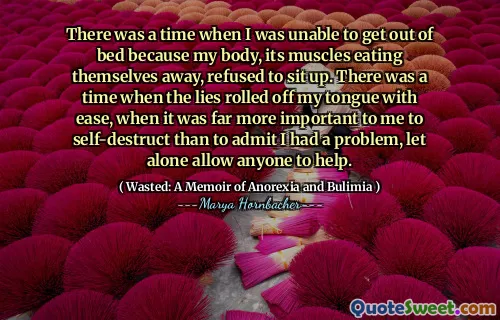
You begin to forget what it means to live. You forget things. You forget that you used to feel all right. You forget what it means to feel all right because you feel like shit all of the time, and you can't remember what it was like before.
This quote poignantly captures the insidious nature of living with chronic mental or physical pain, particularly in the context of eating disorders like anorexia and bulimia. It reflects a gradual erosion of memories and the very essence of joy and normalcy, illustrating how persistent suffering can distort one’s perception of themselves and their experiences. The phrase suggests a loss of identity, where moments of genuine feeling, happiness, or even neutrality become distant memories, overshadowed by relentless discomfort. Such an existence can feel almost endless, trapping individuals in a cycle of despair where even recalling a time when they felt okay seems like a distant fantasy. The emotional toll is profound—it's not just physical discomfort but a profound disconnection from one's past, an almost dissociative experience where the line between suffering and self-awareness blurs. It highlights the importance of compassion and understanding for anyone battling internal demons; their struggles are incredibly nuanced and often invisible to outsiders. The quote also underscores how destructive perseverance in pain can be, leading to a sense of helplessness and umbilical memory loss, which minimizes hope for relief. It ultimately exposes the tragic and isolating nature of such suffering, emphasizing why support and empathetic interventions are crucial. Recognizing this disconnection is the first step toward healing, reinforcing the need for patience and persistent care in the journey toward recovery.







